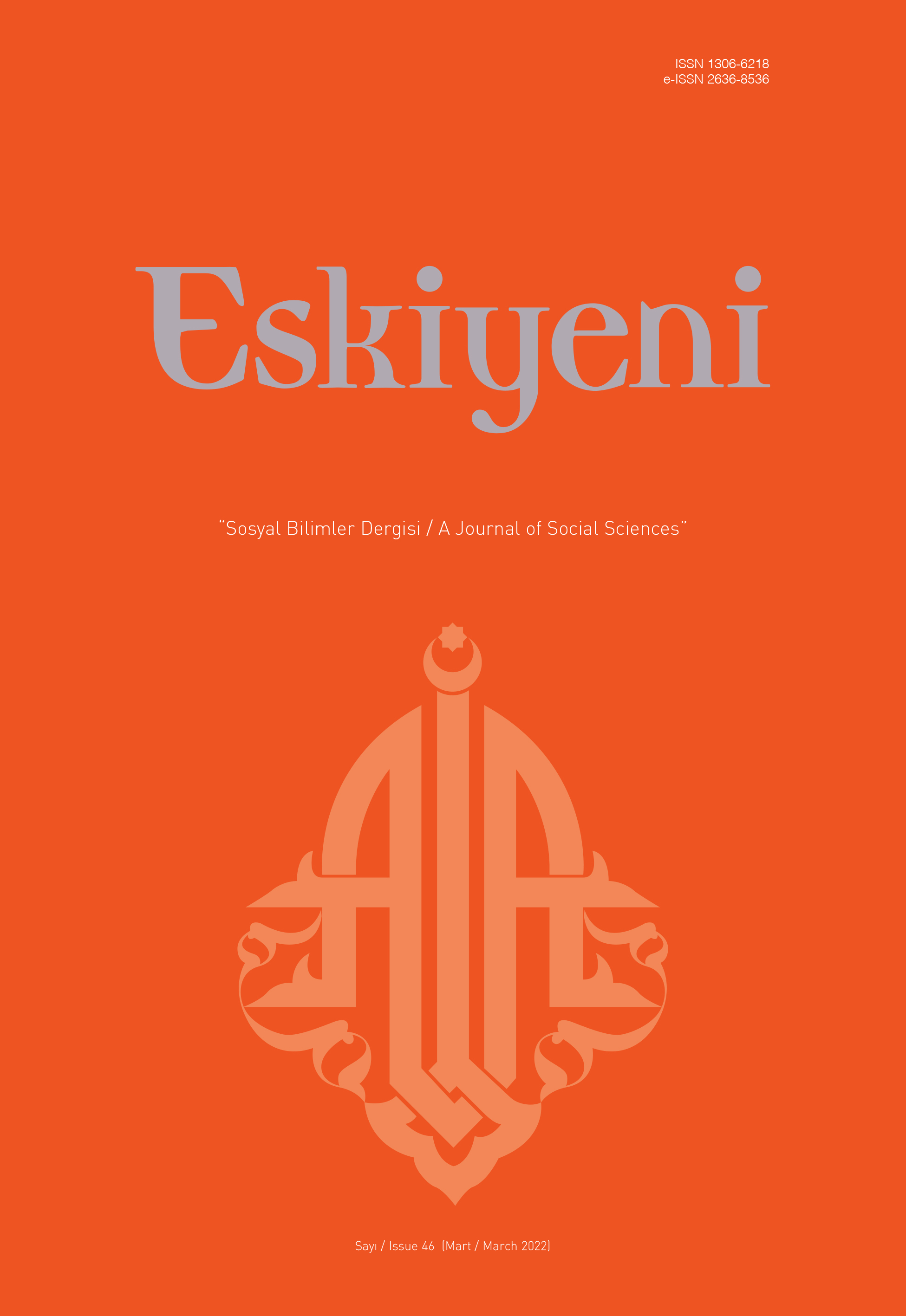Şeyh Hâmid-i Velî’ye (Somuncu Baba) Atfedilen ve Ondan Bahseden Eserlerdeki Tasavvufî Kavramlar
Sufi Concepts in the Works Attributed to and Mentioning Shaykh Hāmid-i Wali (Somuncu Baba)
Author(s): Mahmut UluSubject(s): Theology and Religion, Islam studies
Published by: Anadolu İlahiyat Akademisi
Keywords: Sufizm; Shaykh Hāmid-i Wali; Somuncu Baba; Ascetism; Dhikr;
Summary/Abstract: Shaykh Hāmid-i Wali, better known by the name “Somuncu Baba” in addition to being one of the well-known sufis of the 9/15th century, is a very important name in terms of Anatolian Sūfī tradition. It has relations with the Abheriyya, Naqshbandiyya, Safawiyya and Khalwatiyya sects in terms of succession. Somuncu Baba, to whom a sect was not attributed, trained Hajji Bayrām-ı Wali, the founder of the sect, which is considered the first Turkish sect of Anatolia, like Bayramiyya. In addition, he can be accepted as the pioneer of the lineage that enables the thought of “malāmāt”, which is not an independent sect, but as a joy (nashwa) in the sects, to turn into an independent sect. No comprehensive study has been conducted to reveal the mystical views of Somuncu Baba, who is thought to have an important place in terms of Anatolian Sūfī tradition. For this reason, it is important to consider his mystical views. This study, it is aimed to reveal the concepts that are thought to reflect his mystical thoughts, based on the works and poems attributed to him and the sources dealing with his life. In this context, twenty-four concepts, which are thought to reflect his Sūfī views, have been emphasized within the framework of his works named Sharh al- hadith al- Arbaīn, Rissāla al-Dhikr and Silāh al-Mürīdīn and the information in the sources. These concepts are tawba (repentance), wara’, zuhd (ascetism), sıdq (truth), tawakkul (trust in God), sabr (patience), faqr (poverty), dhikr (praise), du’ā (prayer), sayr al-suluk (spiritual journey), Shaykh (religous leader), murshid (a spiritual quide), murīd (disciple), mujāhadah (contentment), riyāda (ascetivc), khalwat (seclusion), ‘ıshq and muhabbat (love and affection), bada (annihilation), baqaa (perpetuity), tawhid (oneness), qalb (heart), soul and malāmāt (taking blame). It can be said that the way in which the concepts of Sufism are handled in the works attributed to and mentioning Somuncu Baba is in accordance with the meanings used in the dictionary and Sūfī tradition. In addition, it is seen that in these works, sūfī issues are not considered theoretically and formally, but with a practical and applicable aspect, primarily by living, therefore, in the works attributed to him, the concepts of Sufism take place in the form of more practical principles rather than classification or descriptions. In addition, as it can be understood from the works attributed to him and the sources mentioning him, the basis of his Sūfī thought is the Qur'an and Sunnah, that is, the Shari'a provisions and the Prophet's understanding of life. Besides, he gave importance to the words of the Sūfīs who lived before him. Somuncu Baba is one of the Sūfīs who carried the concepts that the Sūfīs emphasis on, following the basic meanings of the period in which he lived. In addition, it is seen that he reflects the sūfī concepts that he directly deals with in his works and that can be reached from his works and the sources that mentioned him. For example, he turned away from the world and its contents and preferred the life of asceticism. He condemned his soul because of those who had his share of worldly goods he condemned his soul and his heart was saddened because of the worldliness he had. He got rid of selfish traits such as fame, being known and preferred the way of hiding like a malāmāt.
Journal: Eskiyeni
- Issue Year: 2022
- Issue No: 46
- Page Range: 395-426
- Page Count: 32
- Language: Turkish

